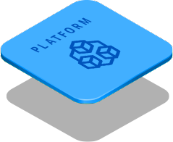Digital medical records have become a cornerstone for improving operational efficiency, accuracy, and patient care. With the shift from paper to digital records, healthcare providers can access patient information quickly. They can also collaborate more effectively and meet regulatory standards more easily. This transformation enhances the quality of care and sets the stage for future innovations in data management and patient outcomes.
Digital medical records allow healthcare organizations to optimize workflows, reduce human error, and streamline compliance processes. Let’s explore the key ways digital medical records reshape the healthcare sector.
The Evolution of Medical Record Management
The journey from paper-based medical records to digital systems marked a significant milestone in healthcare management. Historically, paper records were prone to misplacement, retrieval delays, and limited accessibility. As healthcare demands grew, the need for a more efficient and secure system became clear. The introduction of digital medical records revolutionized this process by making information retrieval faster. Furthermore, it made information more accurate and accessible across multiple departments.

Today, digital records are not just a convenience but a necessity. Through integrated platforms, healthcare providers can easily update patient information, track medical histories, and share data securely across teams. This shift reduces operational costs by ensuring that healthcare professionals have the most up-to-date information at their fingertips.
As we look to the future, the continued development of digital records management systems promises even greater advancements. This also includes using AI to automate routine tasks and enhance decision-making processes.
Improving Operational Efficiency with Records Automation
One key benefit of digital medical records is their ability to streamline workflows through automation. Healthcare facilities often manage vast amounts of patient data, and manually updating records can be time-consuming and prone to errors. Digital solutions automate these tasks, allowing healthcare staff to focus on higher-priority activities such as patient care.
With the proper platforms, healthcare providers can automate data entry, document indexing, and record retrieval processes. This process, in turn, reduces the administrative burden on staff. Automated workflows ensure that critical information is updated in real time, minimizing the risk of errors or outdated information. This level of automation improves accuracy and enhances the speed at which patient data is processed and shared between departments.
By leveraging automation, healthcare organizations can reduce delays, improve collaboration, and ultimately deliver better care to patients.
Improving Accessibility and Security for Digital Medical Records
The healthcare industry is governed by strict data privacy and security regulations, such as HIPAA in the U.S. Digital medical records provide a secure platform for storing sensitive patient information while ensuring that data is easily accessible to authorized personnel. These systems offer advanced encryption, user access controls, and audit trails to protect patient data from unauthorized access and breaches.
Moreover, secure data-sharing protocols within digital records systems ensure patient information is transmitted safely across different departments. This is especially important when coordinating care among multiple specialists or during patient transfers.
Digital records combine accessibility with robust security measures to help healthcare providers maintain compliance with data protection laws and ensure that patient information is readily available when needed.
Supporting Compliance and Simplifying Audits
Compliance is critical to healthcare operations, with regulatory bodies enforcing stringent standards for managing patient records. Digital medical records systems support these compliance requirements by automating audit trails and maintaining a transparent record of all actions on a patient’s file.

Digital platforms make it easier for healthcare providers to respond to audits by organizing records in a way that allows quick retrieval. Platforms offer features that track the history of record access, modifications, and transfers, ensuring that healthcare organizations can easily demonstrate compliance. This level of automation also reduces the risk of non-compliance, which can lead to costly penalties or reputation damage.
By automating compliance processes, healthcare providers can focus on delivering quality care while meeting regulatory standards.
AI-Driven Insights for Better Patient Care
Artificial intelligence (AI) is increasingly important in healthcare, particularly in analyzing digital medical records. AI-powered systems can sift through vast amounts of patient data, identifying patterns and trends that may not be immediately apparent to human analysts. These insights allow healthcare providers to make more informed decisions and improve patient care quality.
AI can also predict patient outcomes, flag potential health risks, and suggest preventative measures. By integrating AI into medical records systems, healthcare organizations can proactively address patient needs, improving outcomes while reducing the overall cost of care.
The Future of Digital Medical Records
The future of digital medical records lies in continued innovation and integration with emerging technologies. As AI, machine learning, and cloud computing become more advanced, healthcare providers can unlock new levels of efficiency and patient care. From automating routine tasks to providing predictive insights, digital medical records will continue to evolve, offering healthcare organizations powerful tools to meet the demands of an ever-changing industry.
As more healthcare providers adopt digital records management systems, we can expect further improvements in interoperability, data accuracy, and patient outcomes. Consolidating data from multiple sources and presenting it in a unified format will enable healthcare professionals to deliver more personalized and effective care.
Find the Best Digital Medical Records System for Your Organization
Digital medical records are transforming the healthcare industry by improving operational efficiency, enhancing data security, and supporting compliance. By automating routine tasks and leveraging AI-driven insights, healthcare providers can streamline workflows and deliver better patient care. The future of healthcare lies in the continued evolution of digital medical records, and organizations that embrace these technologies will be well-positioned to lead in the years to come.
Ready to optimize your digital medical records system? Contact us at VisualVault today to discover how our solutions can help you stay ahead of the curve and ensure compliance with industry standards.


